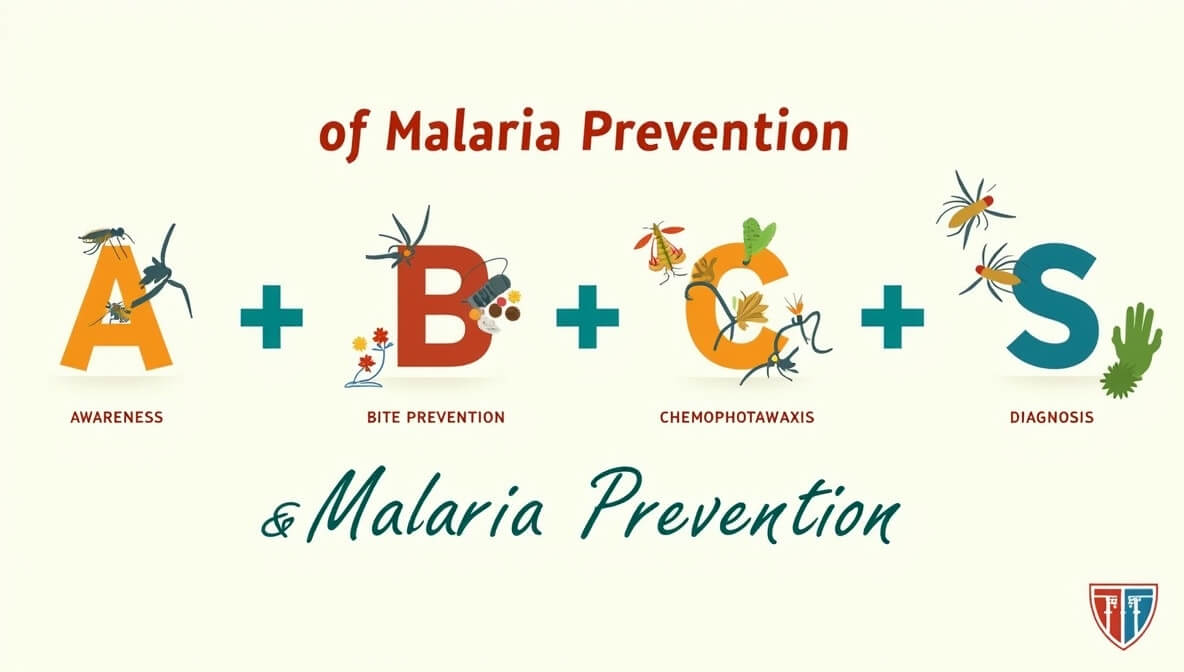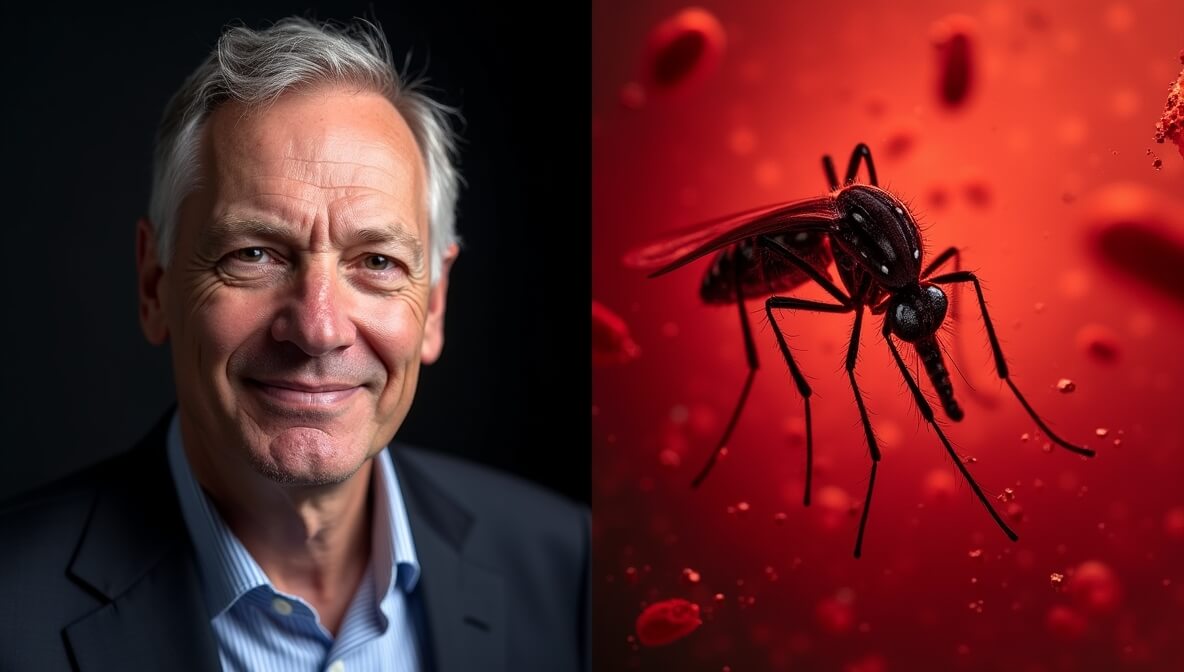Fox News anchor John Roberts shares his harrowing malaria diagnosis. Learn about his symptoms, the risks of this serious disease, and crucial prevention tips for all travelers.
The veteran journalist’s shocking diagnosis serves as a powerful real-world warning about the dangers of a preventable disease and the importance of travel health vigilance.
It was a sickness unlike anything he’d ever known. A relentless, bone-deep exhaustion paired with debilitating fevers that left him completely incapacitated. This wasn’t just a bad flu; it was a life-threatening battle with a parasitic disease. John Roberts, Fox News co-anchor and veteran journalist, recently shared his terrifying experience after being diagnosed with a “serious case” of malaria, a condition he described with chilling simplicity: “Never felt that sick in my life.”
This story is more than just a headline about a media personality’s health scare. It’s a stark and timely reminder of the very real dangers of mosquito-borne illnesses that millions face worldwide. For anyone who travels or knows someone who does, Roberts’ ordeal provides a critical wake-up call.
In this comprehensive post, we’ll dive deep into John Roberts’ shocking diagnosis, explore what malaria actually is, break down the symptoms he experienced, and provide expert-backed, actionable advice on how to protect yourself and your loved ones.

A Shocking Announcement: John Roberts’ Malaria Diagnosis
The news came as a surprise to viewers and colleagues alike. After a noticeable absence from his anchor chair on “America Reports,” John Roberts took to social media and later explained on-air the serious nature of his illness. He revealed he had contracted a potent form of malaria, specifically Plasmodium falciparum, which is the most dangerous type and can be fatal if not treated promptly.
Roberts confirmed he was receiving treatment in an intensive care unit (ICU), underscoring the severity of his condition. His candidness about the diagnosis put an immediate spotlight on a disease that, while rare in the United States, remains a significant global health threat. The experience of a prominent figure like John Roberts, a staple on Fox News, brings the abstract danger of tropical diseases into sharp, relatable focus for a Western audience.
“Never Felt That Sick”: A Closer Look at the Symptoms
Roberts’ powerful statement, “Never felt that sick in my life,” encapsulates the brutal reality of a severe malarial infection. While he didn’t detail every symptom publicly, a classic malaria attack typically involves several stages and debilitating signs.
-
Initial Flu-Like Symptoms: The onset can be deceptive, often mimicking the common flu with fever, chills, headaches, and muscle aches.
-
The “Classic” Attack Cycle: Many experience cycles of shaking chills, followed by a high fever, and then intense sweating as the fever breaks. This can repeat every 48 to 72 hours.
-
Extreme Fatigue: As Roberts alluded to, the exhaustion is profound. This isn’t just feeling tired; it’s a systemic weariness caused by the parasite invading red blood cells.
-
Severe Complications: The falciparum strain Roberts contracted is notorious for causing complications like severe anemia, respiratory distress, and cerebral malaria, which affects the brain. Prompt ICU-level care is often necessary to manage these life-threatening issues.
What is Malaria? An Fit Flair World Explainer
Hearing about a malaria diagnosis in a major U.S. news anchor may be jarring, so let’s break down what this disease actually is. Malaria is a serious and sometimes fatal disease caused by a parasite that commonly infects a certain type of mosquito which feeds on humans.
How is Malaria Transmitted?
People get malaria by being bitten by an infective female Anopheles mosquito. It is not contagious from person to person like a cold or flu. The parasite enters the bloodstream and travels to the liver, where it matures. After several days, the mature parasites enter the bloodstream again and begin to infect red blood cells. This is when people typically develop symptoms. For more in-depth scientific information, authoritative sources like the Centers for Disease Control and Prevention (CDC) provide extensive resources.
The Parasite Behind the Illness
There are five parasite species that cause malaria in humans, but two of these – P. falciparum and P. vivax – pose the greatest threat. Plasmodium falciparum, which John Roberts of Fox News contracted, is the most deadly malaria parasite and the most prevalent on the African continent, a region Roberts has likely traveled to for journalistic assignments.
From News Desk to Hospital Bed: The Crucial Role of Early Detection
Roberts’ story highlights a critical health message: If you have traveled to a malaria-endemic region and develop a fever or flu-like symptoms, you must seek immediate medical attention and specifically inform your doctor of your travel history. Early diagnosis and treatment are the keys to preventing severe complications and ensuring a full recovery. Delays in treatment can have catastrophic consequences, which is why Roberts’ swift admission to an ICU was a life-saving measure.
Your Health First: Actionable Malaria Prevention Tips
John Roberts’ harrowing experience is the most compelling argument for proactive prevention. The good news is that malaria is largely preventable. If you are traveling to an area where malaria is common, follow the “ABCD” of malaria prevention:
-
A – Awareness of risk: Find out whether you’re at risk of getting malaria.
-
B – Bite prevention: Avoid mosquito bites by using insect repellent, covering your arms and legs, and using a mosquito net.
-
C – Check whether you need to take malaria prevention tablets: If you do, make sure you take the right antimalarial tablets at the right dose, and finish the course.
-
D – Diagnosis: Seek immediate medical advice if you have malaria symptoms, including up to a year after you return from your travels.
Consulting with a travel medicine specialist or your primary care physician well before your trip is the most important first step you can take. Reputable organizations like the World Health Organization (WHO) offer up-to-date information on at-risk regions. See more article….Nicole Eggert’s Cancer Battle: The ‘Baywatch’ Star Shares a Powerful & Raw Treatment Update

2. What are the first signs of malaria?
The first signs of malaria often resemble the flu and include fever, chills, headache, muscle aches, and fatigue. Nausea, vomiting, and diarrhea can also occur. Symptoms typically appear 10 to 15 days after an infective mosquito bite.
3. Is malaria contagious?
No, malaria cannot be spread directly from person to person. It is transmitted exclusively through the bite of an infected female Anopheles mosquito.
4. How is malaria treated?
Malaria is treatable with prescription drugs, though the specific type of drug and length of treatment depend on the type of parasite, the severity of the illness, and the patient's age. For severe cases like that of John Roberts of Fox News, hospitalization and intensive care are often required.
5. How can you prevent malaria when traveling?
Malaria prevention involves a four-pronged approach: being Aware of the risk in your destination, preventing mosquito Bites (using repellent and nets), taking preventive anti-malarial Chemoprophylaxis (medication) if prescribed, and seeking a rapid Diagnosis if you develop symptoms.
John Roberts’ public battle with malaria is more than a news story; it’s a powerful, human-centered lesson in the fragility of health and the importance of vigilance. His willingness to share his ordeal transforms a distant tropical threat into a tangible reality. The story of John Roberts of Fox News underscores that no one is immune to these risks when traveling and that preparation is not optional—it’s essential. As we wish him a full and speedy recovery, we can all take away a critical message: be aware, be prepared, and always prioritize your health.
What are your thoughts on this story? Have you or someone you know ever had to take precautions for malaria? Share your experiences in the comments below, and subscribe to AJH World for more vital health and news updates.
This article was researched and written by the Fit Flair Team. We are dedicated to providing clear, accurate, and actionable information on the world’s most important stories, from global news to personal health and well-being. Our mission is to empower you with the knowledge you need to navigate a complex world.

